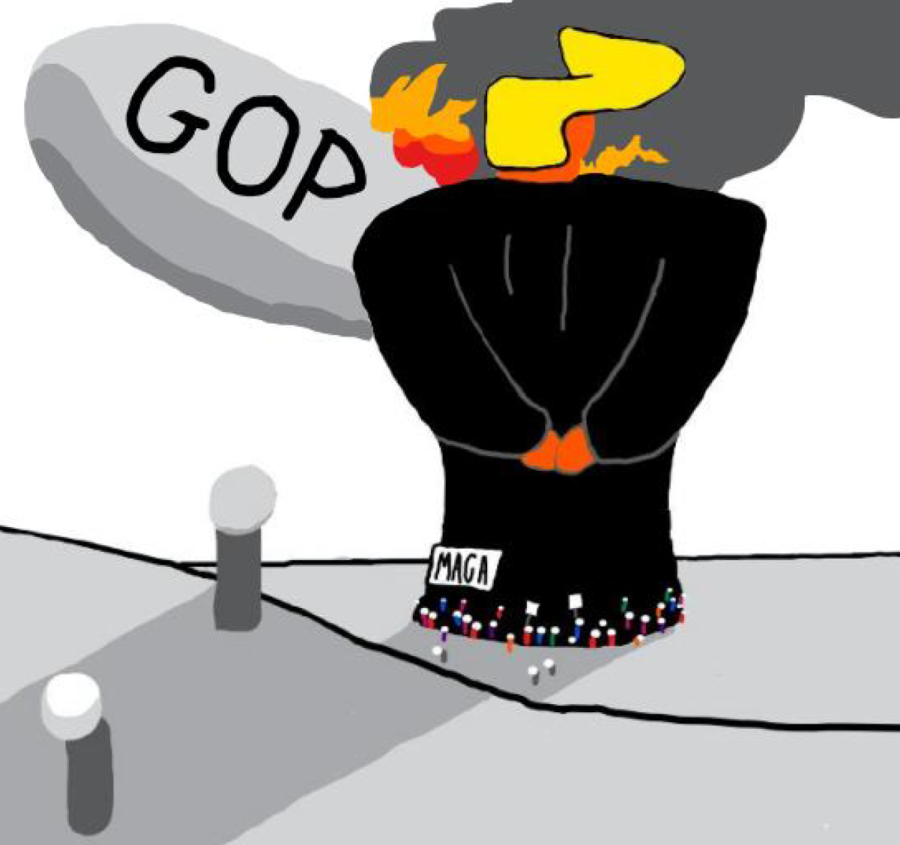By Val Pucci, Staff Reporter
Although election results remain disputed, one thing is clear: most Americans do not like President Donald Trump.
Trump has done an impeccable job exciting his rural, conservative base; however, his demeanor has left independent voters feeling alienated.
From a policy perspective, Trump has favored well among Republicans. In a recent Gallup poll, 95% of Republicans interviewed had a favorable view of the president’s job performance, compared to 41% of independents.
The main issue stems from a small portion of the Republican Party’s base. Unlike the far-left, who generally has an unfavorable opinion of former Vice-President Joe Biden, the far-right has fully embraced Trump and his rhetoric. Organizations such as the Proud Boys, Ku Klux Klan, and other far-right groups openly support the president. Despite their objections, Republicans need to keep their voters engaged. Speaking against any of these groups could pose a major threat to a candidate’s career.
The Republican party took a major gamble in 2016 nominating Trump, and not all Republicans were for it. Even Senator Lindsey Graham (R-S.C.), one of Trump’s most trusted allies in the Senate, strongly opposed the then-Candidate Trump in 2016, suggesting in an interview with CNN’s Wolf Blitzer that Republicans should unite against the radical real-estate mogul. However, nearly four years later, Trump has a good record. Republicans know what to expect from the president. Despite his nonsensical rants on Twitter, Trump does exactly what Republicans need him to do in the oval office. Independents, however, do not hold value in either candidate’s political records, typically focusing on the person rather than the policy.
This is where Republicans struggle. The Democratic Party for years has built its platform on the short-term needs of voters. Medicare for all, assault rifle bans, universal basic income: policy that supports the immediate needs of the American people while completely overlooking the long-term ramifications of expanded government control. Unlike the Democratic platform, the Republican platform offers no immediate benefit to the American people, making it very difficult to convince voters to back Republican candidates.
If the Republican party wants to be relevant in the 21st century, they need to change their tactics. As the Democratic party slowly shifts farther to the left, the Republican party needs to step up and be the unifying force. This is exactly what the Biden campaign did in the 2020 election. Independent voters have grown tired of the divide in this country, and Joe Biden rose to the occasion and projected a sense of normalcy.
Donald Trump has stained the reputation of the Republican party, and although he fulfilled his job as needed, his demeanor has left independent voters feeling alienated. If a Republican candidate wants to win in 2024, they need to change their strategy. Continuing to rely on issues such as abortion and taxation is not sustainable. The future of the Republican party depends on recouping independent voters.


























































































